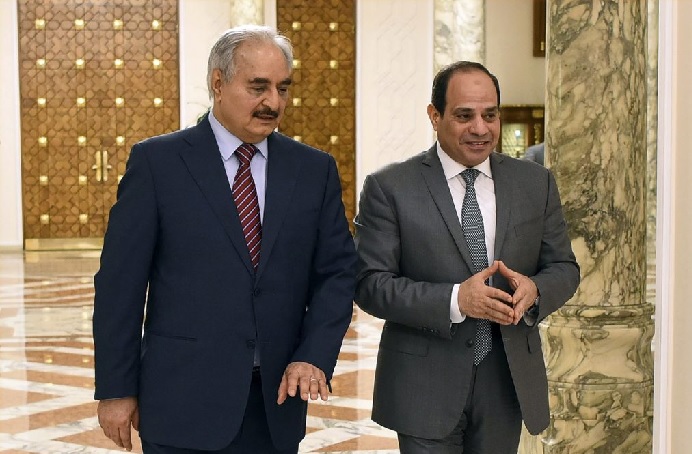Bottom Line Up Front

After suffering significant battlefield losses, warlord Khalifa Haftar and his Egyptian sponsors pushed for, but could not achieve, a cease-fire to the conflict in Libya.
The recent push for a truce, announced in Cairo, is a belated recognition of the realities on the ground in Libya and an admission that Haftar and the LNA have been outmaneuvered militarily, despite robust support from several external backers.
Throughout the course of the conflict, Haftar has overpromised and under-delivered, and his forces have become overly dependent on support from mercenaries, especially the Russian-backed Wagner Group.
Some see the Cairo declaration as a mere publicity stunt, designed to help Haftar cut his losses and to portray his backers as political power brokers now that their quest to turn the tide militarily has failed..
After suffering significant losses on the battlefield to forces loyal to Fayez al-Sarraj and the United Nations-recognized Government of National Accord (GNA), Libyan warlord Khalifa Haftar is pushing for a cease-fire, with the goal of ending the conflict. Egyptian President Abdel-Fattah Al Sisi is supporting the cease-fire and joined Haftar in making the announcement last weekend in Cairo. Egypt is also working to push forward a diplomatic process designed to reach a political settlement. But the GNA rejected the offer of a cease-fire, which seems like it was made more out of desperation than out of any genuine desire to commit to a peace process. Instead, GNA forces have launched an offensive to seize Sirte, a strategically important coastal city on the Mediterranean. The GNA also retook Tarhuna, one of Haftar’s last remaining strongholds in western Libya, and recaptured the Jufra airbase.
The recent push for a truce in Cairo is a belated recognition of the realities on the ground in Libya and a subtle admission that Haftar and his Libyan National Army (LNA) have been outmaneuvered militarily, despite robust support from several external backers, many of whom are angling to gain access to Libya’s vast energy reserves. Along with a motley alliance of Russia, Saudi Arabia, France, and the United Arab Emirates, Egypt has supported the LNA by providing weapons, intelligence, and manpower. After gaining territory following a more than year-long assault on the capital of Tripoli, the LNA, fighting alongside mercenaries and other irregular forces, have been beaten back by the Turkish-supported GNA. In May, Russia dispatched fighter jets to an airbase controlled by Haftar’s forces, which led many to speculate that the conflict would soon escalate yet again. Despite this show of force, Russia now seems to support Egypt’s efforts to implement a truce and temporary respite from violence.
Haftar’s image as a strongman has been tarnished, which could signal that his supporters will seek an alternative to him, especially given his inability to unify broad swaths of eastern Libya. Throughout the course of the conflict, Haftar has overpromised and under-delivered, and his forces have become overly dependent on support from mercenaries, especially the Wagner Group. Beginning in May, Moscow accelerated the recruitment and training of mercenaries from Syria to deploy and fight alongside Haftar’s forces in Libya. Russian mercenaries have propped up the LNA but more recently, serious fissures have been revealed in the coalition that Haftar leads.
The agreement between Turkey and the GNA in December 2019 increased the overt nature of Ankara’s intervention, which has proven to be a clear tipping point in the conflict. Turkey has supplied armed drones, air defense systems, and Syrian mercenaries, and the GNA has effectively deployed the drones at a tactical level, particularly for close air support. The drones have been crucial to the GNA’s ability to neutralize Russian air defense systems. Turkish President Recep Tayyip Erdogan spoke recently with U.S. President Donald Trump and suggested that the two countries discussed a potential path forward, but refused to go into specific details. Some see the Cairo declaration as nothing more than a publicity stunt, designed to help Haftar cut his losses and to portray his backers as political power brokers now that their quest to turn the tide militarily has failed. But even if some of his supporters now consider him expendable, few believe that Haftar will ever genuinely acknowledge that he is losing the fight.
